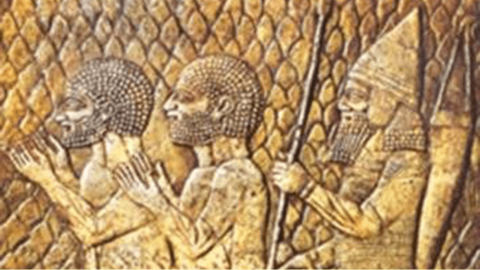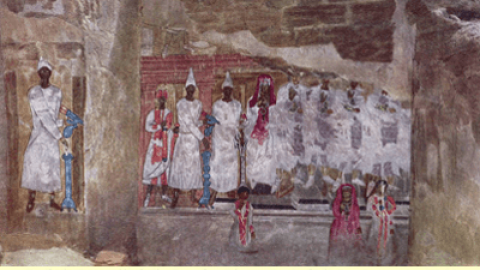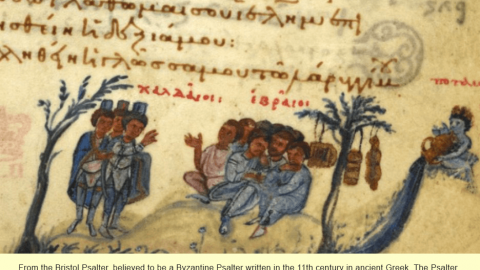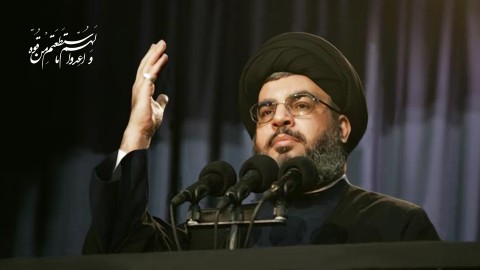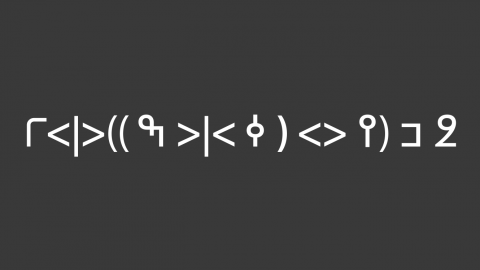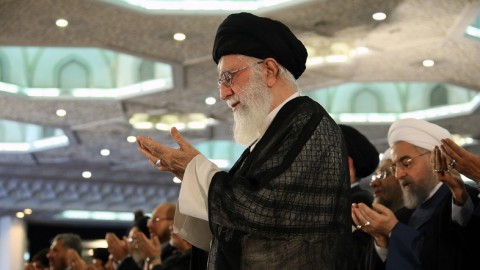The great third century scholar, Abu Al-Abbas Abdullah Ibn Ja’far Hamyari, quote Sindi Ibn Muhammad, quote Safwan Jammal, quote the 6th Imâm Sadiq (Alayhi Salâm) as saying: When the Âya about the Guardianship of Ali (Alayhi Salâm.) was revealed, Prophet of Allah (S) ordered that the ground under the trees over there be cleaned and his followers did so clearing it from the brushwood and preparing a sunshade for him. Thereupon a call was made for congregational prayer and the Holy Prophet (S) said:
أيها الناس! من كنت مولاه فعلي مولاه، الست أولى بكم من انفسكم؟
O’ People! Of whomsoever I am a master, Ali is his master. Am I not closer to you than your own selves?
The People said: “Yes.”
Ghadîr and the Guardianship of Amîr Al Mûminîn Ali – Alayhi Salâm –
The Prophet of Allah(Sallalahu Alayhi Wa Âlihi Wa Salam) said:
من كنت مولاه، فهذا علي مولاه. رب! وال من والاه وعاد من عاداه
.
Of whomsoever I am a master, Ali is his master. My Lord! Befriend anyone who befriends him and make enmity towards anyone who makes enmity towards him.
At this moment, the Prophet (Sallalahu Alayhi Wa Âlihi Wa Salam) ordered the people to pay allegiance to Hazrat Ali (Alayhi Salâm), and they obeyed and paid allegiance to him, making no objection…!1
Abu Nadhr Muhammad Ibn Mas’ud Ayashi Samarqandi, a great third century scholar, has also quoted this narration from Imam Sadiq (Alayhi Salâm) through Safwan.2
The Twelve Imâms in Hâdiths
The various narrations of Hadith al-Thaqalayn also indicate the occasion on which the Prophet (S) proclaimed publicly the primacy of Ahl Al Bayt and gave the clear orders to follow them. ‘Allamah ‘Abd al-Aziz Tabataba’i, who has studied the various narrations of Hadith al-Thaqalayn as recorded by various traditionists mentions four occasions on which the Prophet (S) proclaimed it publicly. First of these is the occasion when the Prophet (S) proclaimed it during his last hajj at ‘Arafat.
On this occasion, the Prophet (S) was accompanied by more than a hundred thousand Muslims. The second occasion relates to his proclamation at Ghadir Khumm, during the course of his return journey to Madinah. The third occasion relates to his proclamation in the Mosque of Madinah. The fourth one relates to his pronouncement of Hadith al-Thaqalayn in his chamber during his last illness. All these occasions lie within a period of ninety days and pertain to the Prophet’s last days.
There are, however, many narrations of the hadith – in fact, most of them – which do not contain any clue about the time and place of its pronouncement. In the following are given instances of the narrations of Hadith al-Thaqalayn relating to each of these occasions, accompanied by the sources which record them.
Al-Tirmidhi in his Sunan (v, 662, no. 3786) records the following tradition
عن جابر بن عبدالله قال: رأيت رسول الله صلى الله عليه وسلم في حجته يوم عرفة وهو على ناقته القصواء فسمعته يقول: ((يا أيها الناس, إني تارك فيكم ما إن أخذتم به لن تضلوا: كتاب الله وعترتي أهل بيتي)).
….Jabir ibn ‘Abd Allah said: “I saw the Messenger of Allah – upon whom be God’s peace and benedictions – in the course of his hajj pilgrimage on the day of ‘Arafah. The Prophet (S) was seated on his camel, al-Qaswa’, and was delivering a sermon. I heard him say: ‘O people, I am leaving among you that which if you hold on to you shall never go astray: the Book of Allah and my kindred, my household.”
Al-Tirmidhi states that the same tradition has been narrated by Abu Dharr, Abu Sa’id, Zayd ibn Arqam and Hudhayfah ibn Usayd.
Among others who have recorded this tradition are:
1. al-Hafiz Ibn Abi Shaybah, as in Kanz al-‘ummal (1st ed.), i, 48;
2. al-‘Uqayli in al-Du’afa’ al-Kabir, ii, 250;
3. al-Hakim al-Tirmidhi, Nawadir al-usul, 68, 50th asl;
4. al-Tabarani, al-Mu’jam al-kabir, iii, 63, no. 2679;
5. al-Khatib, al-Muttafiq wa al-muftariq, cf. Kanz al-‘ummal, i, 48 and Majma’ al-zawa’id, v, 195; ix, 163, x, 363, 268;
6. al-Baghawi, al-Masabih, ii, 206;
7. Ibn al-Athir, Jami’ al-usul, i, 277, no. 65;
8. al-Rafi’i, al-Tadwin, ii, 264 (in the biographical account of Ahmad ibn Mihran al-Qattan; this hadith has been deleted in the Indian print, but is present in the manuscripts of the book ! );
9. al-Mizzi, Tahdhib al-kamal, x, 51, and Tuhfat al-ashraf, ii, 278, no. 2615;
10. al-Qadi al-Baydawi, Tuhfat al-ashraf;
11. al-Khwarazmi, Maqtal al-Husayn (A), i, 144;
12. al-Khatib al-Tabrizi, Mishkat al-masabih, iii, 258;
13. Ibn Kathir, Tafsir (Bulaq edition, on the margin of Fath al-bayan), ix, 115;
14. al-Zarandi, Nazm al-durar al-simtayn, 232;
15. al-Maqrizi, Ma’rifat ma yajib li Al al-Bayt al-Nabawi, 38.
In Sahih al-Bukhari (Arabic-English version), the tradition about the Twelve Imâms is as follows:
Sahih al-Bukhari Hadith: 9.329
Narrated Jabir Ibn Samura:
I heard the Prophet saying, “There will be twelve commanders (Amir).”He then said a sentence which I did not hear. My father said, the Prophet added, “All of them will be from Quraish.”
سمعتُ النبي يقول: يكون إثنا عشر أميراً. فقال كلمة لم أسمعها. فقال أبي كلُّهم من قريش.
In Musnad Ahmad, the tradition about the Twelve Imâms is as follows:
The Prophet (S) said: “There shall be twelve Caliphs
for this community, all of them from Quraish.”
يكون لهذهِ ألامة إثنا عشر خليفة كلُّهَم من قريش.
Reference: Musnad Ahmad Ibn Hanbal, v5, p106
In Sahih Muslim, the traditions about the Twelve Imâms are as follows:
Narrated Jabir Ibn Samura:
The Prophet (S) said: “The matter (life) will not end, until it is passed by twelve Caliphs.”He then whispered a sentence. I asked my father what the Prophet said. He said, the Prophet added: “All of them will be from Quraish.”
إنَّ هذا الامر لا ينقضي حتَّى يمضي فيهم إثْنا عشر خليفة. ثمَّ تكلم بكلام خفيٍّ. فقلتُ لإبي: ما قال؟ قال: كلُّهُم من قريش.
Sunni references:
– Sahih Muslim, Arabic version, Kitab al-Imaara, 1980 Edition Pub. in Saudi Arabia, v3, p1452, Tradition #5
– Sahih Muslim, English version, Chapter DCCLIV (titled: The People are subservient to the Quraish and the Caliphate is the Right of the Quraish), v3, p1009, Tradition #4477
Again from Sahih Muslim:
The Prophet (S) said: “The affairs of people will continue to be conducted (well) as long as they are governed by the twelve men.”
لا يزال أمرُ الناس ماضياً ما وليَهُم إثْنَي عشر رجلاً.
Sunni references:
– Sahih Muslim, Arabic version, Kitab al-Imaara, 1980 Edition Pub. in Saudi Arabia, v3, p1453, Tradition #6
– Sahih Muslim, English version, Chapter DCCLIV (titled: The People are subservient to the Quraish and the Caliphate is the Right of the Quraish), v3, p1010, Tradition #4478
Also:
The Prophet (S) said: “Islam will continue to be triumphant until there have been twelve Caliphs.”
لا يزال الاسلامُ عزيزاً إلى إثْنَي عشر خليفة.
Sunni references:
– Sahih Muslim, Arabic version, Kitab al-Imaara, 1980 Edition Pub. in Saudi Arabia, v3, p1453, Tradition #7
– Sahih Muslim, English version, Chapter DCCLIV (titled: The People are subservient to the Quraish and the Caliphate is the Right of the Quraish), v3, p1010, Tradition #4480
Again:
The Prophet (S) said: “Islâm will continue until the Hour (day of resurrection), having twelve Caliphs for you, all of them will be from Quraish.”
لا يزالُ الدين قائماً حتَّى تقوم الساعة أو يكون عليكم إثْنا عشرَ خليفةً كُلُّهُم من قريش.
Sunni references:
– Sahih Muslim, Arabic version, Kitab al-Imaara, 1980 Edition Pub. in Saudi Arabia, v3, p1453, Tradition #10
– Sahih Muslim, English version, Chapter DCCLIV (titled: The People are subservient to the Quraish and the Caliphate is the Right of the Quraish), v3, p1010, Tradition #4483
More Sunni references of similar traditions:
– Sahih al-Tirmidhi, v4, p501
– Sunan Abu Dawud, v2, p421 (three traditions).
– Others such as al-Tiyalasi, Ibn al-Athir, etc.
Also in another wording, the Messenger of Allah uses the word “Imâm”instead of “Caliph”. It is widely narrated that:
The Prophet (S) said: “The Imâms are from Quraish”
ألأئِمة من قُريش.
Sunni references:
– al-Mustadrak, by al-Hakim, v3, p149
– Musnad Ahmad Ibn Hanbal
– Sahih al-Nisa’i, from Anas Ibn Malik
– Sunan, by al-Baihaqi
– al-Sawa’iq al-Muhriqa, by Ibn Hajar al-Haithami, Ch. 11, section 2, p287
Obviously, the above traditions are not fit to the first four Caliphs all together, as they were less than twelve.
And they can not be applied to the Umayyad Caliphs, because
(a) they were more than twelve;
(b) all of them were tyrants and unjust (except Umar Ibn Abd al-Aziz);
(c) they were not from the Hashimites and the Holy Prophet had said in another tradition that: “All of them will be from the Bani Hashim…”
Also they cannot be applied to the Abbasid Caliphs, because:
(a) they were more than twelve;
(b) they persecuted the descendants of the Prophet every where which means they did not comply with the Qur’anic verse: “I don’t ask you any wage except to love my family.”(42:23).
The recollection about the unfortunate history of Caliphate indicates that, even from the Sunni point of view, there was no good Caliph left after the first 4 Caliphs (It would be 5 if we include Umar Ibn Abd al-Aziz. Some Sunnis are very generous and they add Imam al-Hasan (as) and Imam al-Mahdi (as) to the list as well.)
To fill out the twelve set, some even included the well-known tyrants to the list such as Yazid Ibn Mu’awiya, Marwan Ibn al-Hakam, Abdul-Malik Marwan, and Husham Ibn Abdul-Malik. The reason is clear and as I stated previously, it is due to the lack of decent and sincere rulers in the History of Islam.
I would like to remind you that “Caliph”means successor/deputy. The successor of the Prophet (or the preceding Caliph) should come immediately after the demise of the Prophet (or the preceding Caliph). If there is any gap between the successors, the word “successor”does not make any sense. So successors should come right after the other without any gap. Also as the Prophet (S) suggested in the above traditions, those twelve Caliphs will cover till the day of resurrection.
As you may know, the Followers of the Members of the House of the Prophet (S) refer to these 12 Caliphs as of their 12 Imams starting with Imam ‘Ali (as) and ending with Imam Mahdi (as) the leader of our time. There are Caliphs because Allah made them Caliphs (They are vice-regents of Allah on the earth). With the passage of time and through historical events, we know that by the above traditions the Holy Prophet (S) meant the twelve Imams from his Ahlul-Bait who are the descendants of the Prophet since we have no other 12 pure candidates in the history of Islam upon whose righteousness all Muslims agree. It is interesting to know that even the enemies of Shi’a have NOT been able to find any fault in the virtues of the twelve Imams of Shi’a. Moreover these twelve Imams came one after another without any gap.
It is now clear that the only way to interpret the previously mentioned traditions which are narrated by al-Bukhari, Muslim, Abu Dawud and al-Tirmidhi, al-Hakim, and Ahmad Ibn Hanbal is to accept that it refers to the Twelve Imams from the Prophet’s Ahlul-Bait, because they were, in their times, the most knowledgeable, the most illustrious, the most god-fearing, the most pious, the best in personal virtues, and the most honored before Allah; and their knowledge was derived from their ancestor (the Prophet) through their fathers. These are the Ahlul-Bait whose sinlessness, flawlessness, and purity is confirmed by the holy Qur’an (the last sentence of verse 33:33).
Also the above mentioned traditions of the Prophet which are considered to be authentic by the Sunnis, proves beyond doubt that the concept of “Twelve Imams”can NOT be a Twelver Shi’ites concoction! It is amazing that despite the acknowledgment of al-Bukhari and Muslim and other prominent Sunni scholars about the twelve Imams, the Sunnis always stop at the four Caliphs!
More interestingly, there are Sunni reports in which the Messenger of Allah named these twelve members of his Ahlul-Bait one by one starting with Imam ‘Ali (as) and ending with Imam al-Mahdi (as). (see Yanabi’ al-Mawadda, by al-Qunduzi al-Hanafi).
Now after reviewing all these straightforward authentic traditions which ALL Muslims unanimously agree upon, we can legitimatyely ask the question why are not ALL muslims following then orders from Rassul’Allah – Sallalahu Alayhi Wa Âlihi Wa Salâm – and why are so many Muslims ignorant about it?
The Islâmic world should remember that the Prophetic Orders are to be obeyed. This is of critical importance in these troubled times considering the grave overt and covert deceptions, aggressions and dangers the Ummah is facing. If Muslims do not know their Twelve Leaders, how they obey them and staty on the Right Path? Indeed, the Messenger of Allah (S) said:
He who dies while he does not know the Imam of his age, is like the one who died during days of Jahiliyya (the era before Islam).
من ماتً و لم يعرف إمام زمانهِ مات ميتة جاهلية.
Read more about The Twelve Imâms of Islâm
https://www.imamreza.net
https://www.al-islam.org
